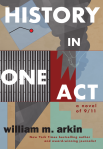STRATFOR, or Strategic Forecasting, is in the news of late because Wikileaks managed to obtain what it says are five million internal Emails from the self-described “private intelligence” firm.
Let me be clear about the real issue here: Though it’s titillating to get a peek into how corporations are paying for information, especially about activists who endanger them, that question is mostly of interest to the shareholders. The real issue is why anyone in the U.S. government – that means, U.S. tax dollars – would be interested in buying something that is available for free, of questionable value, and could (and should) be provided by the intelligence agencies. That is the scandal.
The news media also seems split on how to portray STRATFOR (and Wikileaks), mostly I note, because the mainstream media loves to use the Wikileaks material but also loves to downplay the significance of anyone else’s findings, particularly that of an “activist” organization. Hence the Associated Press can say that “the first, small batch published Monday contained little that was particularly scintillating.”
On the other hand, screamers and special interest “media” love to overplay Wikileaks (and, by extension, STRATFOR) as blowing the lid off of government and revealing the darkest of the dark. Thus Amy Goodman can say:
“The whistleblowing website WikiLeaks has begun publishing what it says are 5.5 million emails obtained from the servers of Stratfor, a private U.S.-based intelligence-gathering firm known to some as a “shadow CIA” for corporations and government agencies.”
The only people who refer to STRATFOR as a “shadow CIA” are those who love to say shadow CIA.
Michael Ross in The National Post (Canada) has a more apt analysis of the actual substance of STRATFOR’s analysis, though he is both too kind in glamorizing the skills of government intelligence agencies.
I haven’t seen anything yet on how much STRATFOR gets from the U.S. taxpayer for its information, but I note that the Air Force’s Services Agency (for the Air Force library system) paid STRATFOR $124,950 last August – for ten concurrent users (they paid $119,950 in 2010). Other government entities, Pacific Air Forces (PACAF) headquarters in Hawaii, the U.S. Military Academy at West Point, the Air University in Alabama, have solicited recent bids for access to STRATFOR’s materials, the Air University for 1,500 unlimited users (at the Air Force library rate, that would be over $1 million).
The PACAF justification and approval letter to enter into a limited competition contract with STRATFOR claims:
“Stratfor’s web portal provides access to real-time, critical political, economic and security related events and developments. Stratfor’s forecasting capabilities are supported by an internationally-recognized team of experts and analysts. Government and military leaders use Stratfor to gain insights on triggers affecting geopolitical events and potential movements around the world.”
What a bunch of crap. Isn’t this what the intelligence agencies are supposed to be doing?
The news reports say that the Marine Corps, the Department of Homeland Security, and even the Defense Intelligence Agency additionally subscribe to STRATFOR’s materials, though I could find no trace of their contracts on the Federal Business Opportunities (FBO) website.
So, millions of tax dollars, to support what? It’s not shadow CIA, though if STRATFOR’s materials are any good, that’s an insult to them. Even if STRATFOR’s materials are excellent, you gotta question the wisdom of the government pay even for students at the academies and war colleges to “get access” to something like this.


